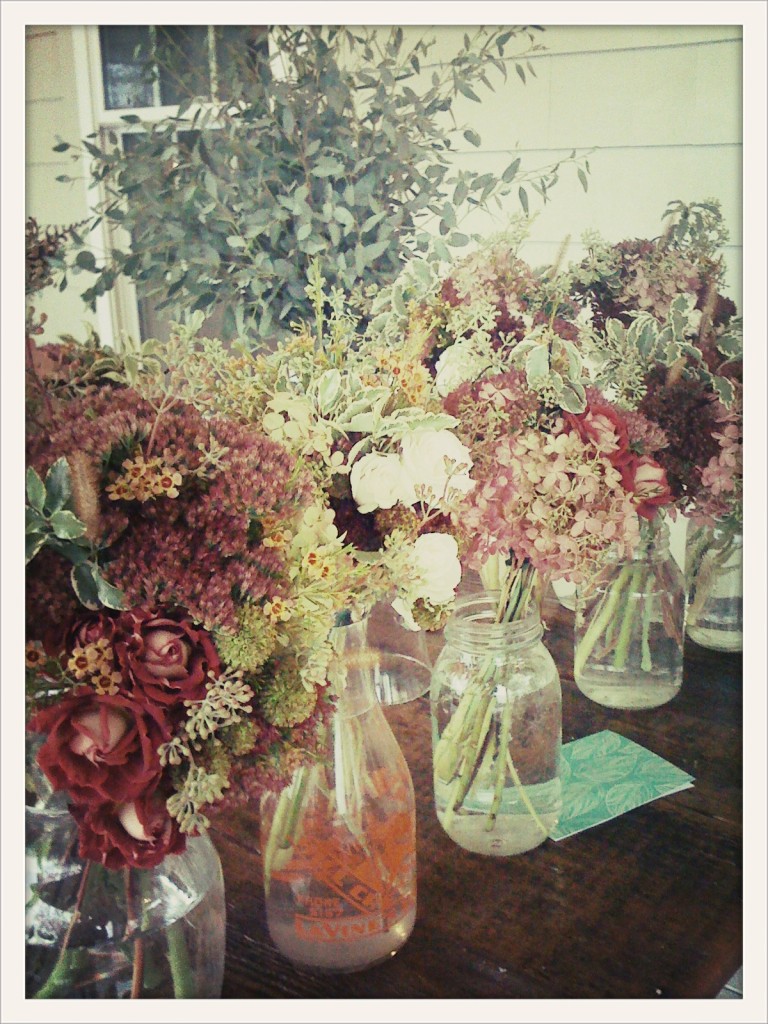It happened when I was nine, a skinny fourth grader, mousy brown hair and a stubborn soul. I don't know what I was told to wear that morning, but I know what I wore because it is there, memorialized in color, on a 5x7 school photo. Glasses were new to me and I had picked out blue plastic frames; it was the 90s, but still? I wore a patterned blue shirt, blue shorts, sandals with blue socks. I thought this meant I matched.
When the photos came, as they did every year, in a big white envelope, I stared back at the face staring back at me and that's when it happened. That's when I knew what I was sure everyone must have known all along: I was ugly.
It was the comparison of the girls beside me, their hair in ribbons and their pretty plaid dresses pressed and flounced. It was the realization that my hair would never be sleek and shiny, or blond. It was the truth that my features would always be bigger or smaller, while the features of other girls would always be more beautiful, more feminine, more anything than what I could ever be. It was a belief that I've carried with me my entire life: I'm ugly, maybe someday I'll be a swan, but today, I'm the ugly duckling.
So when my roommate asks me to resolve to love my body this year, its nuances and its curves, its imperfections and its perfectly crafted parts, I balk. I can't do that. Loving others comes oh so naturally to me, loving myself is always a resolution for next year.
When a friend asks me to write a blog on whether looks matter in relationships, I tell him that I'm probably the last person to write that blog.
When I have a conversation with a friend the other night and I'm talking about the doubt in my soul regarding so many things related to looks (mine and others), she stops me and says, "What are you afraid of?"
What am I afraid of?
I'm afraid of two things: the first is that I'll find what is not beautiful to be beautiful, the second is that I'll never be found beautiful.
So I want to know, really, what is beautiful? And does it matter what is beautiful?
WHAT IS BEAUTY
I say it often enough about nearly every person I know, every piece of art in my home, the spate of days we've been having in Texas, the sunsets that make me gasp, the conversations I have with friends; it is never difficult for me to find beauty in every single thing I know. I'm prone to finding beauty in so many things, my friends just roll their eyes now when another exclamation comes from my mouth.
But what is beauty outside the eye of the beholder?
What is beauty when it can be teased apart from shiny magazine spreads and museum walls and computer screens in a midnight bedroom? What is beauty when it is seen through the lens of the gospel and nothing less?
I only know to start with the fact that Jesus spent his earthly time and energy teaching us to turn a kingdom of classes into a kingdom of completion. His interest was in the poorest, the lowest, the outcast, and the richest, the most corrupt, the most beautiful. This morning my pastor spoke how Christ came to reconcile us to Himself and us to one another, but what most struck me is that Christ came to reconcile us to ourselves.
Ourselves.
Myself.
My self.
IMAGO DEI
Self love is not a topic I want to talk about when I think about beauty. Here's why: I want all the beautiful people to start loving the unbeautiful. I want the perfect people to start loving the imperfect, the unlovely. I want there to be an impact that is measurable, tangible, and I don't know that self-love is the most productive way of getting there.
But here is the argument I'd like to make: if we do not love the self we have been given, we are exercising ungratefulness toward the God who created us in His image. We are, in essence, rejecting God who dwells in our temporal temples.
And I would add this, when we reject what God has called beautiful in others, even if we ourselves do not find it instantly attractive, we are denying what God has created in them.
When I call that fourth grade photo ugly, I look at the imago dei, the image of God, and I blaspheme what He has called good.
When I look with a critical eye at the mirror tonight while I wash my face and brush my teeth, I blaspheme what he has called good.
Hear me when I say that simply because God has called it good does not mean it has not been broken by the fall. It has and this is my great, great comfort on days when I feel the curse of having the body of a woman and all the lovely things that entails in particular times of the month (!).
There is a brokenness that accompanies us wherever we go, hanging on to our backs like a trained monkey. But sometimes we chain that monkey to our own back, buying magazines, feasting our eyes on what is even more broken, in hopes that we can attain what? More brokenness?
DO LOOKS MATTER?
Yes. Oh yes they do. Praise God they do. Praise God that He put us here on earth with a garden to tend and pray to Him that we tend it well. Pray that we tend our own plot well and pray that we are attentive to the plots of others. Praise Him that He created different sizes and shapes and colors and genders. Praise Him for His creativity in design. Praise Him that we find anything lovely at all.
Paul says "Whatever is true, whatever is honorable, whatever is just, whatever is pure, whatever is lovely, whatever is commendable, if there is any excellence, if there is anything worthy of praise, think about these things." God help us to find beauty wherever we find these things. If we do, we will find that beauty is found readily.
DO LOOKS MATTER?
No. No, they don't. Not really. Not in the end of the story (which is really just the beginning). No, they don't matter here on earth where we will all either grow bellies or waste away to nothing, where the grey hair eventually goes white or disappears completely, where wrinkles grow exponentially, breasts sag, and strength fails. Beauty is so fleeting, so temporal, a vapor.
Gone.
But, which is more, and so much more beautiful, looks don't matter because one day everything that does not glorify the Lord will be purified out of us. Everything. Every sag, every wrinkle, every mark, every love handle--and, don't miss this, each and every perfect nose, every straight tooth, every sculpted muscle, every six-pack abdomen. Every health nut and every couch potato, every beauty queen and every street child. If it is not proclaiming the majesty of the Only One due glory, it will be consumed by the All Consuming Fire.
My fourth grade me and my 30 year old me. My best version of me and my worst version of me. My joyful reflection of Him and my mirror's sickening reflection of me. All of it will glorify Him.
THE REAL QUESTION
The question is so much more than What is Beautiful? or Do looks matter? The question is, am I valuing what God values in me and am I valuing it in others?
No matter what my fourth grade photo instilled in me, He is the standard of my beauty.
The real beauty in that is because He is the standard, I know I can't ever measure up.
There is nothing good in me but what He has redeemed for His glory, so I am always the ugly duckling who was picked even in my ugliness. He didn't wait for my inner swan to grow. He's not waiting for some future version of me to materialize. He's not waiting for me to match a magazine spread or even grow happy with this earthly version of me. He's after me seeing the depth of what He's done in me. Through me. With me. For His glory. Alone.
He's after me seeing Him in the mirror.
Related resources that I've been mulling on:
Do Looks Matter on the Gospel Coalition Blog
New Year, New Self-Control by Jen Wilkin
January 8th sermon by Matt Chandler (This will be online in the next few days)















